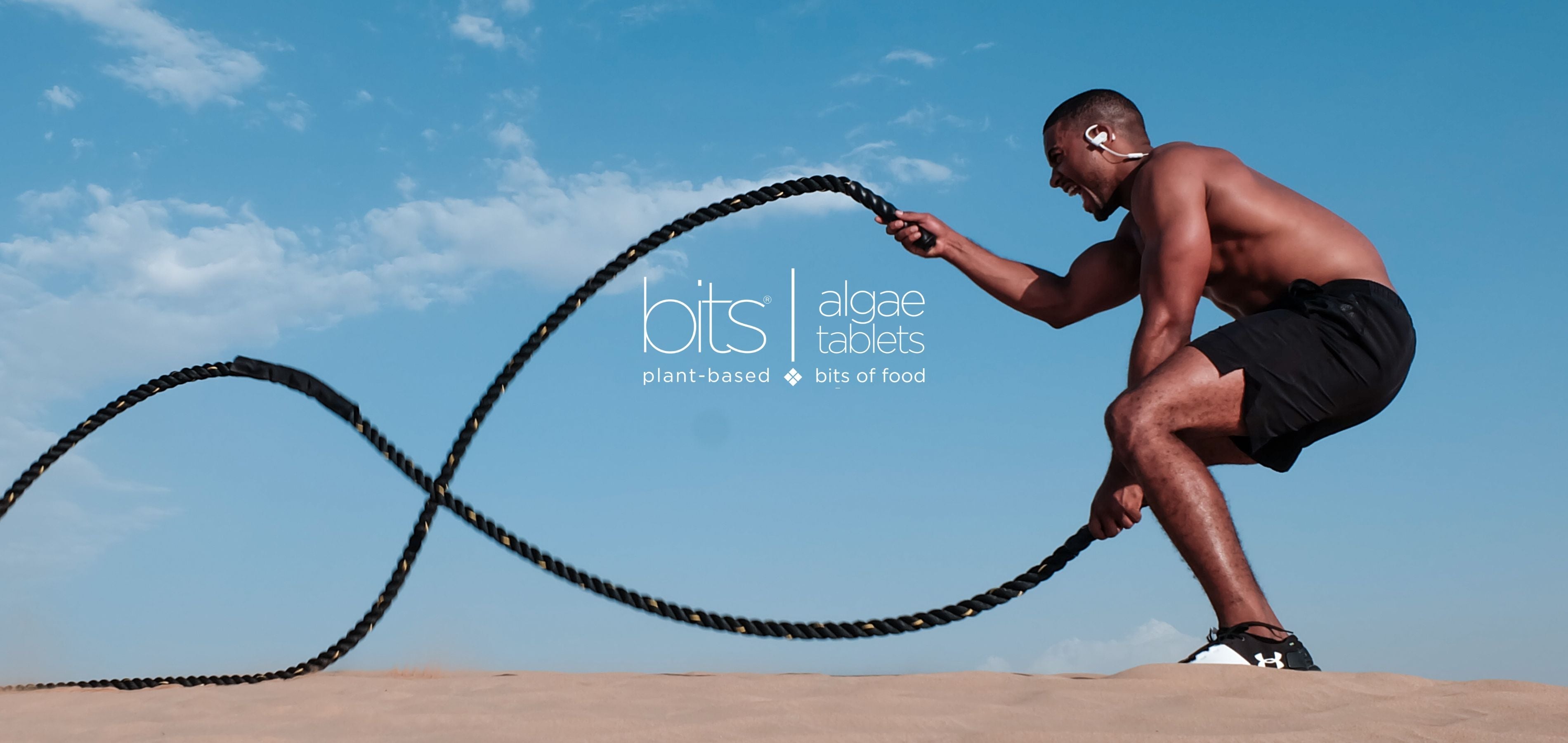
Keto is Better with Algae
, by Catharine Arnston, 9 min reading time

, by Catharine Arnston, 9 min reading time
I’m sure most of you have heard of a ketogenic diet by now- it’s a hot buzzword in the fitness and health communities, but despite the recent hype, a ketogenic diet is not a new phenomenon. In medicine, it’s been around for 100 years to treat drug-resistant epilepsy, especially in children <1>. In the 1970’s, Dr. Atkins popularized the low-carbohydrate diet for weight loss. Since then, the ketogenic diet has become widely known as one of the most common methods for obesity and rapid weight loss. The ketogenic lifestyle that we will be discussing today has come a long way from a double quarter pounder cheeseburger (hold the bun) with bacon, so stay tuned…
Research over the last decade or so has provided evidence of the therapeutic potential of ketogenic diets in many pathological conditions, such as diabetes, polycystic ovary syndrome, acne, neurological diseases (such as Parkinson’s, stroke, seizures, brain tumors, Alzheimer’s), cancer and the development of respiratory and cardiovascular disease risk factors <2>.
The Charlie Foundation for Ketogenic Therapies was founded in 1994 to provide information about ketogenic diet therapies for people with epilepsy, other neurological disorders and select cancers.
There are an increasing number of leading scientific researchers like Dr. Dominic D’Agostino and metabolic health gurus like Dr. Ryan Lowery who are doing exciting research about keto diets and how they can be safely used to reduce inflammation and chronic disease. We are proud that many of them are adding algae to their keto protocols since it improves patient outcomes and speeds healing.
No one should consider the ketogenic diet a cure for any disease or disorder on its own. Nonetheless, a plant-based ketogenic diet with algae has great potential to improve overall health and wellness, reads on to learn why!!!
First, let’s quickly review what a ketogenic diet is (we will pause so you can take out your notepad and a pencil) … it involves drastically reducing carbohydrate intake and replacing it with fat. This reduction in carbs puts your body into a metabolic state called ketosis <3>. Ketosis is a metabolic process that occurs when the body begins to burn fat for energy because it does not have enough carbohydrates to burn <4>. Many of these fatty acids are transferred to the liver, where they are oxidized and turned into ketones (or ketone bodies) <3>. These molecules can provide energy for the body and especially the brain. Unlike fatty acids, ketones can cross the blood-brain barrier and provide energy for the brain in the absence of glucose.

The most reliable and accurate method of measuring ketosis is to measure your blood ketone levels. We highly recommend using KetoMojo ketone strips, the gold standard for measuring blood ketone levels. They provide an FDA approved method that is extremely accurate, affordable and easy to use.
The ketogenic diet typically reduces total carbohydrate intake to less than 50 grams a day. To put it in perspective, that’s less than the amount found in a single bagel! Generally, popular ketogenic resources suggest an average of 70-80% fat from total daily calories, 5-10% carbohydrate, and 10-20% protein <5>. For a 2000-calorie diet, this translates to about 165 grams fat, 40 grams carbohydrate, and 75 grams protein. Ok, you got all that written down??
Now let’s talk about the quality of foods for a keto diet and why some are better than others. You won’t need a pen and paper for this one, it’s quite simple; a plant-based keto diet is much better with algae. Plant-based diets focus on foods primarily from plants- it doesn’t mean that you are vegetarian or vegan and never eat meat or dairy. Rather, you are choosing more of your foods from plant sources. Plant-based diets have been shown to support health, including a lower risk of developing coronary heart disease, high blood pressure, diabetes, and increased longevity <6>.
It’s important to understand that keto diets alone do not contain enough chlorophyll or Vitamin K2. A deficit of either one can put your liver, long term health and longevity at risk. Plant-based and vegetarian diets can also lack important vitamins such as vitamin B12, iron, zinc and omega-3 fatty acids <7>.

In addition, algae also provides a great source of essential fatty acids (DHA, GLA, Omega-3), forty other vitamins and minerals, and high amounts of antioxidants. Algae is endorsed by NASA and United Nations as the most nutrient dense food in the world.
ENERGYbits® is a nationally recognized algae nutrition company based in Boston. Our physician-grade spirulina and chlorella tablets are sold by functional medicine doctors like Dr. Will Cole and keto scientists/thought leaders like Dr. Dominic D’Agostino. In fact, we thought you’d like to see the kind word they say about us below. We’re blushing.

When your body is entering ketosis, it’s common to get the keto flu. The drastic reduction of carbohydrates can come as a shock to the body and may cause withdrawal-like symptoms, similar to those experienced when weaning off an addictive substance like caffeine. How crazy is that?! Some people may experience symptoms such as diarrhea, fatigue, muscle soreness and sugar cravings. <12>. Good news- you can combat the keto flu by adding sodium to your diet (in moderation), potassium-rich, keto-friendly foods (like algae), staying hydrated, avoiding strenuous activities and eating enough healthy fats.
Did you know that ENERGYbits® algae tablets are plant-based keto friendly? They do not decrease ketones or increase glucose. They have ZERO carbs, sugars, caffeine, chemicals or gluten. They are also vegan, made of one ingredient and are non-GMO. When our algae is combined with a ketogenic diet, the results are powerful, holistic natural and lifechanging. So… what are you waiting for, order some today!
If you’re looking to learn more about ketogenic diets from the world’s top researchers and scientists, check out the Ketogenic Metabolic Health Summit January 30th in Long Beach, California.
Also, make sure to check out the recipe section of our blog for some fun ways to incorporate algae into your diet with recipes your whole family can enjoy!


